Applications for tax-exempt status of charities filing under section 501(c)(3) of the tax code are now quicker and easier for as many as 70 percent of all applicants, says the IRS. According to an IRS press release, organizations with gross […]
 Applications for tax-exempt status of charities filing under section 501(c)(3) of the tax code are now quicker and easier for as many as 70 percent of all applicants, says the IRS.
Applications for tax-exempt status of charities filing under section 501(c)(3) of the tax code are now quicker and easier for as many as 70 percent of all applicants, says the IRS.
According to an IRS press release, organizations with gross receipts of $50,000 or less and assets of $250,000 or less are eligible to use a new three-page application form. The standard form is 26 pages.
IRS Commissioner John Koskinen said, “It didn’t matter if you were a small soccer or gardening club or a major research organization. [The standard form] process created needlessly long delays for groups, which didn’t help the groups, the taxpaying public or the IRS.” According to the IRS, the new shorter form will “speed the approval process for smaller groups and free up resources to review applications from larger, more complex organizations while reducing the application backlog.”
There is a concern groups not having true charitable purposes may use the tax-exempt status to make political contributions without having to reveal the original source of the funds. In a TIME magazine article published July 13, Koskinen dismissed the idea that “if someone has been forced to do more paperwork they’re going to be less nefarious.”
July 14, 2014 •
Proud to Be a CSG Sponsor!
State and Federal Communications is proud to be a sponsor and associate for The Council of State Governments Midwest Legislative Conference in Omaha, Nebraska! Elizabeth Bartz, president and CEO of State and Federal Communications, is attending the conference, which runs […]
 State and Federal Communications is proud to be a sponsor and associate for The Council of State Governments Midwest Legislative Conference in Omaha, Nebraska!
State and Federal Communications is proud to be a sponsor and associate for The Council of State Governments Midwest Legislative Conference in Omaha, Nebraska!
Elizabeth Bartz, president and CEO of State and Federal Communications, is attending the conference, which runs from July 13-16.
The CSG website offers the following explanation of the event: “The Midwestern Legislative Conference Annual Meeting is a family-friendly, regionally focused event designed to meet the needs and interests of state legislators from our 11-state region. Held in a different Midwestern city every year, the four-day event features policy sessions on issues of critical importance to this region and its legislators.”
July 14, 2014 •
Kentucky Changes to Lobbying Gift Law Take Effect
New restrictions on legislative lobbying expenditures take effect Monday, July 14, 2014. House Bill 28 includes a “no cup of coffee rule” to eliminate the gift exception allowing legislative lobbyists to spend $100 on food and beverage for a legislator. […]
 New restrictions on legislative lobbying expenditures take effect Monday, July 14, 2014. House Bill 28 includes a “no cup of coffee rule” to eliminate the gift exception allowing legislative lobbyists to spend $100 on food and beverage for a legislator.
New restrictions on legislative lobbying expenditures take effect Monday, July 14, 2014. House Bill 28 includes a “no cup of coffee rule” to eliminate the gift exception allowing legislative lobbyists to spend $100 on food and beverage for a legislator.
Legislative lobbyists and their employers are now also prohibited from providing out-of-state transportation or lodging for legislators.
Employers of legislative lobbyists are prohibited from making campaign contributions during a regular legislative session and required to disclose the cost of advertising supporting or opposing legislation.
The Ethics Commission has voted to prevent independent committees from using material produced by candidates in committee advertisements. The amendment to the Election Campaign Control Ordinance (ECCO) will classify a committee’s otherwise independent payment as a “contribution” if the payment […]
 The Ethics Commission has voted to prevent independent committees from using material produced by candidates in committee advertisements.
The Ethics Commission has voted to prevent independent committees from using material produced by candidates in committee advertisements.
The amendment to the Election Campaign Control Ordinance (ECCO) will classify a committee’s otherwise independent payment as a “contribution” if the payment is for an advertisement duplicating materials found in a candidate’s advertisement or on the candidate’s website. Such payments would be subject to both contribution limits and source prohibitions.
The amendment now must be considered by City Council. Approval is not expected before September, 2014.
Photo of the San Diego skyline courtesy of Tomcio77 on Wikimedia Commons.
July 11, 2014 •
News You Can Use Digest – July 11, 2014
National: Eschewing Lobbyists, States Advocate for Themselves USA Today – Elaine Povich (Pew Center on the States) | Published: 7/10/2014 The 2011 ban on earmarks – the inclusion of money for specific local projects in broader bills – has prompted […]

National:
Eschewing Lobbyists, States Advocate for Themselves
USA Today – Elaine Povich (Pew Center on the States) | Published: 7/10/2014
The 2011 ban on earmarks – the inclusion of money for specific local projects in broader bills – has prompted a shift away from states paying Washington, D.C.-based lobbyists to advocate for them. Now, more state lawmakers and other officials are combining forces to advocate for themselves. K Street lobbyists were specialists in getting earmarks because of their personal connections to federal lawmakers. The state coalitions are making broader arguments for funds that benefit more than one individual project.
Federal:
Sen. Robert Menendez Seeks Probe of Alleged Cuban Plot to Smear Him
Washington Post – Carol Leonnig and Manuel Roig-Franzia | Published: 7/7/2014
With a public corruption investigation hanging over him, U.S. Sen. Robert Menendez suggested Cuban spies had planted the seeds of that inquiry as a way to discredit him and mute his strident opposition to the government in Havana. His comments followed media stories that said a 2013 CIA report had cited credible evidence linking Cuban agents to a campaign to smear Menendez. The FBI is investigating whether Menendez received free airplane rides and other perks from a wealthy donor and repaid him with political favors. Even if Menendez’s Cuba theory is correct, it is unlikely to derail the probe.
From the States and Municipalities:
California – Support Wanes in Sacramento for Tough Ethics Reform following Scandal
San Jose Mercury News – Jessica Califati | Published: 7/5/2014
Since voting to suspend Leland Yee and two other state senators indicted in recent months, California lawmakers have held a “day of reflection” and considered more than a dozen new pieces of ethics reform legislation. But while support for bills requiring more disclosure of gifts and contributions remains strong, interest in tougher proposals that would restrict politicians’ fundraising and access to free trips has waned significantly in the last few months. “You can’t be against an ethics bill the day after the scandal, but it’s no longer the day after the scandal,” said Jessica Levinson, a professor who specializes in campaign finance law.
Florida – Miami Lakes’ Muzzled Mayor Misses ‘My People’ as Trial Is Set to Begin
Miami Herald – Jay Weaver | Published: 7/7/2014
Michael Pizzi, the suspended mayor of Miami Lakes, is facing a trial in federal court on corruption charges. He is charged with conspiracy and extortion offenses for allegedly accepting $6,750 in mostly cash bribes during an FBI sting operation. Pizzi, a Brooklyn native, sees himself as the character Carmine Polito in the Oscar-nominated movie American Hustle – an over-the-top tale of the FBI’s undercover takedown of a fictional blue-collar New Jersey mayor who lived for his constituents.
Florida – Sternad, Saying He Was Duped, Gets 7 Months
Miami Herald – Jay Weaver | Published: 7/10/2014
A judge sentenced a failed South Florida congressional candidate to seven months in prison for campaign finance violations in a case linked to former U.S. Rep. David Rivera. Justin Sternad pleaded guilty last year to campaign finance violations, including accepting illegal contributions and filing false reports. The case involves allegations that Rivera, a Republican, secretly financed Sternad’s campaign to weaken Democratic rival Joe Garcia. Rivera has repeatedly denied any wrongdoing, although close Rivera associate Ana Alliegro is also charged in the case. Rivera is again running for the House seat against Garcia after losing to him in 2012.
Hawaii – Ethics Commission Investigates Golf Perks
Hawaii News Now – Rick Daysog | Published: 7/9/2014
The Hawaii Ethics Commission is winding down its year-old investigation targeting number of employees at the University of Hawaii (UH) and the Department of Transportation (DOT) for receiving thousands of dollars in free golf outings provided by government contractors. Recent filings with the commission by DOT and UH employees indicates just how widespread the practice is. “For a lot of these firms, it’s simply the cost of doing business and this has got to stop because it makes people trust their government less,” said UH political science professor Colin Moore.
Iowa – Koch Brothers Group Targets Iowa Politics
USA Today – Jennifer Jacobs (Des Moines Register) | Published: 7/6/2014
Americans for Prosperity, the conservative political advocacy organization backed by Charles and David Koch, is building an operation in Iowa –– the site of the first presidential primary – that is intended to sway voting in the state for years to come. Using methodical canvassing, Americans for Prosperity-Iowa seeks to identify voters who are sympathetic to its message. Its database is to include an individual’s political orientation, likelihood to vote, and serve as a roster of probable swing voters.
Louisiana – C. Ray Nagin, Former New Orleans Mayor, Sentenced to 10 Years in Prison
Los Angeles Times – David Zucchino | Published: 7/9/2014
Former New Orleans Mayor Ray Nagin was sentenced to 10 years in federal prison for his participation in a $500,000 bribery scheme that operated during most of his time in office. Many of the kickbacks took place after Hurricane Katrina, when contractors crowded into the city for rebuilding work. The sentence was less than the recommended 15 years, but U.S. District Court Judge Ginger Berrigan said the evidence failed to show Nagin had organized or had been a leader of a conspiracy. Prosecutors objected to the sentence, a move that could set up an appeal.
Maine – Cutler Supporters’ Lawsuit Challenges Constitutionality of Maine Donation Limits
The Sun Journal – Christopher Cousins (Bangor Daily News) | Published: 7/8/2014
Four supporters of independent gubernatorial candidate Eliot Cutler filed a lawsuit against Maine’s ethics commission for not being allowed to contribute as much to Cutler as they could to a party candidate. State law allows party candidates to accept $1,500 donations from individuals for both the June primary and the general election, even if those candidates do not face primary challengers. As an independent, Cutler can collect no more than $1,500 per donor. The lawsuit says that law should be struck down as unconstitutional.
Massachusetts – Robert DeLeo in Glare at Probation Hiring Trial
Boston Globe – Milton Valencia and Michael Levenson | Published: 7/10/2014
Massachusetts House Speaker Robert DeLeo strongly denied assertions by prosecutors at the federal trial of the state’s former probation department commissioner that DeLeo traded jobs for votes or deliberately spared the agency from budget cuts. Prosecutors said in a court filing that such an arrangement had existed between DeLeo and former probation commissioner John O’Brien, who is being tried along with two deputies for allegedly rigging the agency’s hiring process to favor applicants referred by powerful lawmakers, in exchange for favorable legislative action on the budget or other matters.
Missouri – Ex-Missouri House Speaker’s Campaign Fund Still Yielding Benefits Two Years Later
St. Louis Post-Dispatch – Kevin McDermott | Published: 7/6/2014
It is not unusual for former Missouri lawmakers to jump immediately into lobbying their former colleagues with no waiting period. What is unusual is for ex-legislators to keep their campaign funds open and use it in ways that appear to promote their lobbying activities, such as with former House Speaker Steve Tilley. A St. Louis Post-Dispatch review found no other current lawmaker-turned-lobbyist operating under circumstances like the ones surrounding Tilley. That makes some reformers wonder if he is setting a dangerous new precedent that others might follow.
Ohio – Cleveland to Host 2016 GOP Convention
Politico – Katie Glueck and Maggie Haberman | Published: 7/8/2014
In choosing Cleveland as the site of the 2016 Republican National Convention, party organizers opted for a Democratic enclave in the pivotal battleground state of Ohio over the wealthier and more conservative Dallas area. The announcement is a coup for Cleveland as it seeks to update its image from an economically struggling Rust Belt city to a thriving metropolis with a revitalized downtown. The decision to go with Ohio was anticipated by many Republican operatives and donors. “We’re going where the swing voters are,” said GOP strategist Mike Murphy.
Pennsylvania – Interest Groups’ Lobbying Tally Tops $500M in Pennsylvania
Pittsburgh Tribune-Review – Melissa Daniels | Published: 7/4/2014
In 2013, lobbyists spent $518 million on costs related to influencing Pennsylvania lawmakers. It is the first time the spending exceeded the $500 million mark. Gabrielle Sedor, president of the Pennsylvania Association for Government Relations, said the increase in spending is likely is because of rising costs overall, such as salaries and travel costs. She said lobbyists try to provide expertise and research about industry trends, and to keep tabs on statehouse activity. “To be a lobbyist and have a good relationship, you have to be honest and ethical and be a source of information, a reliable resource above anything else,” said Sedor.
Rhode Island – R.I. Lobbyist Rickman Discloses He Loaned $10,000 in 2009 to Ex-House Leader Fox
Providence Journal – Katherine Gregg | Published: 7/8/2014
A lobbyist who failed to disclose he loaned money to former Rhode Island House Speaker Gordon Fox has now said the loan was for $10,000. Ray Rickman and Fox had both neglected to report the loan from August 2009 in required filings. State Ethics Commission attorney Jason Gramitt said nothing in the law bans a lobbyist from giving a public official a loan, but the loan would create a ‘business relationship” which in all cases, except those involving legislators, would create a clear conflict-of-interest if that official took any action that financially benefited that business associate.
South Carolina – SC Supreme Court: Harrell probe can continue
The State – Jamie Self | Published: 7/9/2014
The South Carolina Supreme Court ruled the state’s top prosecutor has the authority to investigate House Speaker Bobby Harrell over allegations the lawmaker abused his power for personal benefit. The justices said Attorney General Alan Wilson is fully empowered to probe wrongdoing wherever it may occur, and his powers are not blunted because the investigation involves a lawmaker’s ethical conduct. The ruling overturned a lower court’s decision to halt Wilson’s investigation.
 State and Federal Communications produces a weekly summary of national news, offering more than 80 articles per week focused on ethics, lobbying, and campaign finance.
State and Federal Communications produces a weekly summary of national news, offering more than 80 articles per week focused on ethics, lobbying, and campaign finance.
News You Can Use is a news service provided at no charge only to clients of our online Executive Source Guides, or ALERTS™ consulting clients.
July 9, 2014 •
Special Election to be Called for Florida House District 13
A special election is expected for Florida’s House District 13, a district covering the heart of Jacksonville and its surrounding areas. Incumbent state Rep. Reggie Fullwood was projected to run unopposed, but problems were found with his qualifying papers. Jacksonville […]
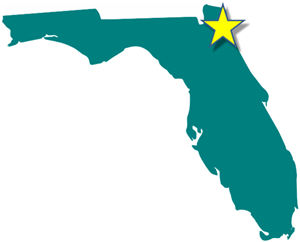 A special election is expected for Florida’s House District 13, a district covering the heart of Jacksonville and its surrounding areas. Incumbent state Rep. Reggie Fullwood was projected to run unopposed, but problems were found with his qualifying papers. Jacksonville City Council member Johnny Gaffney now plans to enter the race.
A special election is expected for Florida’s House District 13, a district covering the heart of Jacksonville and its surrounding areas. Incumbent state Rep. Reggie Fullwood was projected to run unopposed, but problems were found with his qualifying papers. Jacksonville City Council member Johnny Gaffney now plans to enter the race.
Gov. Rick Scott must determine the date of the special election, although Duval County Supervisor of Elections Jerry Holland projects the primary for the special election to be November 4, 2014. If necessary, a runoff would likely be in December 2014.
Gov. Neil Abercrombie signed Senate Bill 2629 on Monday, July 7, amending Section 97-3 of the Hawaii Revised Statutes. Effective immediately, registered lobbyists, lobbyist employers, and certain individuals are required to file statements of expenditures with the state ethics commission […]
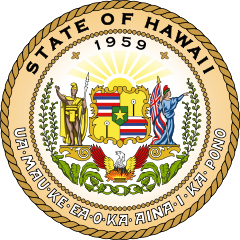 Gov. Neil Abercrombie signed Senate Bill 2629 on Monday, July 7, amending Section 97-3 of the Hawaii Revised Statutes. Effective immediately, registered lobbyists, lobbyist employers, and certain individuals are required to file statements of expenditures with the state ethics commission within 30 days of adjournment sine die of any special session of the Legislature.
Gov. Neil Abercrombie signed Senate Bill 2629 on Monday, July 7, amending Section 97-3 of the Hawaii Revised Statutes. Effective immediately, registered lobbyists, lobbyist employers, and certain individuals are required to file statements of expenditures with the state ethics commission within 30 days of adjournment sine die of any special session of the Legislature.
Individuals who are not lobbyists or lobbyist employers must only file if spending $750 or more in any six month period for the purpose of influencing legislative or administrative action, or a ballot issue, by communicating with public officials or engaging in grassroots activity.
The report must cover the period from May 1 through adjournment sine die of the special session and applies to and includes only those expenditures and contributions relating to legislative action considered during said special session.
The special report is an addition to, but does not take the place of, all other reporting requirements.
July 8, 2014 •
Federal Suit in Maine Challenges Contribution Limits
A federal lawsuit was filed July 7, 2014, challenging certain provisions of Maine’s campaign finance law. Sections 1015(1) and 1015(2) of Chapter 21-A of the Maine Revised Statutes limit political contributions to a gubernatorial candidate from an individual, political committee, […]
 A federal lawsuit was filed July 7, 2014, challenging certain provisions of Maine’s campaign finance law. Sections 1015(1) and 1015(2) of Chapter 21-A of the Maine Revised Statutes limit political contributions to a gubernatorial candidate from an individual, political committee, corporation, or business entity to $1,500 in any election. Therefore, a candidate can collect a total of $3,000 from each contributor because there are ordinarily two elections – a primary election and a general election.
A federal lawsuit was filed July 7, 2014, challenging certain provisions of Maine’s campaign finance law. Sections 1015(1) and 1015(2) of Chapter 21-A of the Maine Revised Statutes limit political contributions to a gubernatorial candidate from an individual, political committee, corporation, or business entity to $1,500 in any election. Therefore, a candidate can collect a total of $3,000 from each contributor because there are ordinarily two elections – a primary election and a general election.
The lawsuit, filed by four supporters of gubernatorial candidate Eliot Cutler, alleges this provision of law is unconstitutional on First and Fourteenth Amendment grounds. Cutler is running as an independent and therefore did not participate in the state’s June 10 primary election. As a result, the law only allows contributions of $1,500 per contributor because Cutler will only participate in one election. The suit alleges minor parties, including independent candidates, are at a disadvantage under the existing scheme.
Defendants named in the case include the Maine Ethics Commission, Walter McKee as chairman of the commission, and Secretary of State Matthew Dunlap. The suit seeks a permanent injunction ceasing enforcement of the $1,500 per election limit as applied to independent candidates.
If granted, the injunction would apply to the 2014 election cycle.
July 7, 2014 •
In Reversal of Prior Decision, House Ethics Committee Will Continue Requiring Reporting of Privately Sponsored Travel
On July 3, the House Ethics Committee announced it would return to calling for House members to report privately sponsored travel in their annual financial disclosure forms – a requirement it had quietly removed earlier this year. However, when the […]
 On July 3, the House Ethics Committee announced it would return to calling for House members to report privately sponsored travel in their annual financial disclosure forms – a requirement it had quietly removed earlier this year. However, when the removal of this requirement was revealed, it caught national attention and generated strong responses. Supporters of the change argued the reporting is merely duplicative because the travel must still be reported by members to the House Office of the Clerk.
On July 3, the House Ethics Committee announced it would return to calling for House members to report privately sponsored travel in their annual financial disclosure forms – a requirement it had quietly removed earlier this year. However, when the removal of this requirement was revealed, it caught national attention and generated strong responses. Supporters of the change argued the reporting is merely duplicative because the travel must still be reported by members to the House Office of the Clerk.
July 3, 2014 •
News You Can Use Digest – July 3, 2014
National: As Numbers Grow, Single Women Emerge as Political Powerhouse New York Times – Jackie Calms | Published: 7/2/2014 Recent elections suggest unmarried women have emerges as a voting bloc that is reshaping the electorate to the Democratic Party’s advantage. […]

National:
As Numbers Grow, Single Women Emerge as Political Powerhouse
New York Times – Jackie Calms | Published: 7/2/2014
Recent elections suggest unmarried women have emerges as a voting bloc that is reshaping the electorate to the Democratic Party’s advantage. In order to prevent Republicans from capturing a U.S. Senate majority in November, Democrats and allied groups are making an aggressive push to woo single women. They seized on the ruling by the Supreme Court’s conservative majority – five men – that family-owned corporations do not have to provide birth control in their insurance coverage, to buttress their arguments that Democrats better represent women’s interests.
How Cozy Can Candidates Be With Political Groups?
The Center for Public Integrity – Rachel Baye | Published: 7/1/2014
Laws vary widely when it comes to how close candidates can be with political backers – what is allowed in one state may be illegal in another. In Florida and Michigan, for example, candidates and supposedly independent groups seemingly work hand in hand, while Connecticut and Minnesota recently affirmed such groups must keep their distance. Meanwhile, federal office seekers operate under an entirely different set of rules on coordination that even regulators cannot agree on.
Terre Haute’s Jim Bopp Jr. a Conservative Titan
Raleigh News & Observer – Mark Bennett (Terre Haute Tribune Star) | Published: 6/29/2014
Attorney Jim Bopp has won nine of 13 cases at the U.S. Supreme Court. He initiated the Citizens United case, which overturned restrictions on spending by corporations and labor unions to support or defeat candidates. Bopp has crisscrossed the nation for more than 30 years, working on more than 150 cases in state and federal courts, knocking down laws he believes inhibit the expression of free speech in campaigns. “In the often arcane world of campaign finance law, he’s a veritable rock star,” said Dave Levinthal, who investigates the influence of money in politics for the Center for Public Integrity.
Federal:
Congress Quietly Deletes a Key Disclosure of Free Trips Lawmakers Take
National Journal – Shane Goldmacher | Published: 6/30/2014
U.S. House members are longer required to list on their annual financial disclosure reports some privately sponsored trips they take. The change was not publicly announced but was described in an instruction book available to members of Congress on how to fill out the forms. Legislators will still have to provide details about their travel on the House clerk’s website, which is less commonly monitored by reporters, watchdog groups, and others than the financial disclosure reports.
LobbyIt: Aiming to be everyman’s lobbyist
Washingtoon Post – Catherine Ho | Published: 6/30/2014
Four years ago, Paul Kanitra opened LobbyIt, a firm in Washington whose business model was nicknamed by some as “McLobbying.” The firm represents mostly small businesses and little-know associations. LobbyIt does not use retainers – which on K Street is typically $15,000 per month. Instead, it uses set pricing levels of $995, $1,995, $2,995, or $4,999 a month. Kanitra describes the firm’s target audience not as the in-house government affairs manager at a Fortune 500 company, but as “the executive director of a small association in Idaho who hasn’t been in D.C. since their eighth-grade class trip.”
From the States and Municipalities:
California – Complaints of Nepotism Dog California Senate
Sacramento Bee – Laurel Rosenhall | Published: 6/29/2014
Concerns about personnel practices and allegations of nepotism are swirling in Sacramento as an investigation proceeds into claims that friends and family of key administrators get special access to taxpayer-funded jobs. Hiring family members is not forbidden in the California General Assembly, and the Legislature is not subject to the same rules that govern hiring in other parts of state government.
Connecticut – Diageo, Pfizer Pay to Settle 2012 DNC Ethics Violation
Connecticut Mirror – Mark Pazniokas | Published: 6/30/2014
Diageo North America and Pfizer agreed to each pay a $5,000 penalty to the Connecticut Office of State Ethics for failing to report spending on receptions each company held during the 2012 Democratic National Convention. Multiple Connecticut state employees, public officials, and/or members of a public official’s family or staff attended each event. Neither Diageo nor Pfizer, both registered as principals in Connecticut, reported the expenses on their lobbyist financial reports.
Kentucky – Legislative Caucuses Rely on PACs, Reports Show
Louisville Courier-Journal – Tom Loftus | Published: 6/30/2014
Each of the General Assembly’s four political caucuses reported their contributions and expenses over the past 18 months to the Kentucky Registry of Election Finance recently. A review of those reports show how heavily dependent the caucuses are on the special interests that lobby lawmakers. Of the nearly $1,036,000 raised by the caucuses over the period, about $394,000 – roughly 38 percent – was contributed by PACs affiliated with corporations and trade associations.
Missouri – Freebies Flow at Missouri Capitol; Pols Accept More than $600K from Lobbyists
St. Louis Post-Dispatch – Walter Moskop | Published: 7/2/2014
Lobbyists in Missouri spent $680,000 on gifts for public officials during the 2014 legislative session, with nearly all of it going to state lawmakers. It is not clear which lawmakers were the recipients of the vast majority of lobbyist spending. More than $500,000 in gifts went to legislative committees or the entire General Assembly, mostly in the form of receptions and meals. By listing a committee or legislative body as the recipient of the gift, lobbyists do not have to provide names of specific lawmakers.
New York – G.O.P. Power Broker in Albany Is Charged With Lying to F.B.I.
New York Times – Thomas Kaplan and William Rashbaum | Published: 7/1/2014
New York Sen. Thomas Libous is facing charges he lied to the FBI about using his elected position to arrange a law firm job and an inflated salary for his son. An indictment alleges Libous claimed he did not know how his son, Matthew, got the job. It also says Sen. Libous told the FBI he was unaware a lobbying firm was paying part of his son’s salary. It has been previously alleged that Thomas Libous arranged his son’s job and salary in exchange for steering business to the law firm.
Cleveland Plain Dealer – James McCarty | Published: 6/30/2014
Businessperson Benjamin Suarez was found not guilty of illegally funneling $200,000 to the campaigns of U.S. Rep. Jim Renacci and Ohio Treasurer Josh Mandel. The jury found him guilty of one felony count for tampering with a witness. Prosecutors said Suarez’s family members, employees, and their spouses contributed money to the re-election campaign of Renacci and Mandel’s failed U.S. Senate bid. The donors were then reimbursed with company money. The contributions coincided with acts Mandel and Renacci took on behalf of Suarez’s company, which was facing a lawsuit in California. Defense lawyers maintained Suarez did not willfully break the law.
Rhode Island – Fox Had Loan from Registered Lobbyist for Years
WPRI – Michelle Smith (Associated Press) | Published: 6/27/2014
Documents show former Rhode Island House Speaker Gordon Fox had a personal loan from a registered lobbyist for several years. State Ethics Commission filings show the loan of an undisclosed amount over $1,000 was from lobbyist Ray Rickman. Jason Gramitt, an attorney for the Ethics Commission, said state law does not prohibit a lawmaker from taking a loan from a lobbyist, but it does create a business association. Fox’s activities have been under scrutiny since March, when the FBI, IRS, and other authorities raided his statehouse office and home. He resigned his leadership position the next day.
Vermont – Court: Super PAC not independent enough
Politico – Byron Tau | Published: 7/2/2014
A three-judge panel of the U.S. Court of Appeals for the Second Circuit ruled a state-level super PAC in Vermont was not “functionally distinct” enough from a sister committee that gives money to candidates and political parties. As a result, the judges found the supposedly separate group might not have been acting independently and can be subject to Vermont’s contribution limits. Campaign finance reformers say the court has taken an important step in actually examining claims about whether an organization is independent, rather than accepting the group’s word on the matter.
Wisconsin – No Conclusion in Inquiry into Scott Walker’s Campaign Fundraising
New York Times – Monica Davey | Published: 6/26/2014
A prosecutor cautioned he has not made a final determination about whether Wisconsin Gov. Scott Walker and his campaign illegally coordinated fundraising among conservative groups during recall elections in 2011 and 2012. An attorney representing special prosecutor Francis Schmitz warned the media and public against jumping to conclusions of guilt based on documents within a once-secret John Doe probe that emerged in a federal lawsuit.
 State and Federal Communications produces a weekly summary of national news, offering more than 80 articles per week focused on ethics, lobbying, and campaign finance.
State and Federal Communications produces a weekly summary of national news, offering more than 80 articles per week focused on ethics, lobbying, and campaign finance.
News You Can Use is a news service provided at no charge only to clients of our online Executive Source Guides, or ALERTS™ consulting clients.
July 1, 2014 •
Delaware General Assembly Adjourns
The 147th Delaware General Assembly adjourned sine die Tuesday, July 1, 2014. In keeping with longstanding Delaware tradition, legislators worked into the early hours of the morning attempting to pass dozens of bills before the end of the session. Noteworthy […]
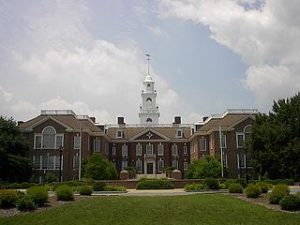 The 147th Delaware General Assembly adjourned sine die Tuesday, July 1, 2014. In keeping with longstanding Delaware tradition, legislators worked into the early hours of the morning attempting to pass dozens of bills before the end of the session. Noteworthy among those bills are measures to provide $10 million in relief to the state’s three ailing casinos and to toughen penalties on DUI offenders.
The 147th Delaware General Assembly adjourned sine die Tuesday, July 1, 2014. In keeping with longstanding Delaware tradition, legislators worked into the early hours of the morning attempting to pass dozens of bills before the end of the session. Noteworthy among those bills are measures to provide $10 million in relief to the state’s three ailing casinos and to toughen penalties on DUI offenders.
On July 1, the maximum value for food, drink, or refreshment an individual may provide to an elected official or public employee in Louisiana for a single event increases from $57 to $58. This threshold value is adjusted each year […]
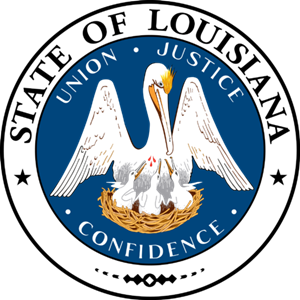 On July 1, the maximum value for food, drink, or refreshment an individual may provide to an elected official or public employee in Louisiana for a single event increases from $57 to $58.
On July 1, the maximum value for food, drink, or refreshment an individual may provide to an elected official or public employee in Louisiana for a single event increases from $57 to $58.
This threshold value is adjusted each year by the Board of Ethics to reflect changes in the consumer price index.
June 27, 2014 •
New Jersey to Implement New eProcurement System
On October 14, 2014, New Jersey will implement State of the Art Requisition Technology (NJSTART), a new eProcurement system designed to simplify the procurement process, drive efficiency, and promote competition. The system’s online business directory will be accessible by all […]
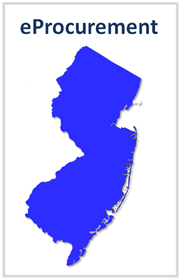 On October 14, 2014, New Jersey will implement State of the Art Requisition Technology (NJSTART), a new eProcurement system designed to simplify the procurement process, drive efficiency, and promote competition. The system’s online business directory will be accessible by all state agencies, suppliers, and local governments. Vendors will be able to create individual profiles, receive email alerts for upcoming procurement opportunities, submit proposals, and access training manuals and reference guides.
On October 14, 2014, New Jersey will implement State of the Art Requisition Technology (NJSTART), a new eProcurement system designed to simplify the procurement process, drive efficiency, and promote competition. The system’s online business directory will be accessible by all state agencies, suppliers, and local governments. Vendors will be able to create individual profiles, receive email alerts for upcoming procurement opportunities, submit proposals, and access training manuals and reference guides.
NJSTART will replace the 25-year-old mainframe system and will allow vendors to access their profiles in real time at any time of day.
Early enrollment is available for vendors who would like to be properly registered when the new system goes live. Because vendors will only be paid if they are registered in the system, vendors on existing contracts are strongly encouraged to register in the system prior to October.
June 27, 2014 •
News You Can Use Digest – June 27, 2014
National: Wisconsin Governor Scandal Shows States as New Front in Fight for Dark Money Disclosure Sunlight Foundation – Stan Oklobdzija | Published: 6/25/2014 As prospects for any regulations at the federal level seem murky at best, it appears the fight […]

National:
Wisconsin Governor Scandal Shows States as New Front in Fight for Dark Money Disclosure
Sunlight Foundation – Stan Oklobdzija | Published: 6/25/2014
As prospects for any regulations at the federal level seem murky at best, it appears the fight against clandestine political donors may be leaving Washington, D.C. and entering statehouses around the country. The Sunlight Foundation reported that at least 18 bills introduced during the most recent legislative sessions in various states would impose new disclosure rules or amend existing regulations regarding independent expenditures.
Federal:
Thousands of Missing Emails at IRS: What’s it all about?
Los Angeles Times – Joseph Tanfani | Published: 6/24/2014
IRS Commissioner John Koskinen disclosed that emails sent by Lois Lerner, the former director of the agency’s division that oversaw tax-exempt groups, were lost when her computer hard drive crashed in 2011. Koskinen told Congress that eight other hard drives from potential recipients had crashed as well. Republicans have seized on the missing emails, alleging in hearings that their disappearance is evidence of a cover-up by the IRS over a scheme to target conservative nonprofits seeking tax exempt status.
Venture Capital Firm Settles S.E.C. Charges over ‘Pay-to-Play’
New York Times – William Alden | Published: 6/20/2014
TL Ventures agreed to pay almost $300,000 to settle charges it violated the Securities and Exchange Commission’s “pay-to-play” rules. The SEC prohibits investment firms from providing paid services to a government client for two years after a contribution by the firm or an employee to candidates or officials who could influence the management of public assets. The agency said TL Ventures continued to receive advisory fees from the city and state pension funds immediately following campaign donations made by an associate in 2011 to the Pennsylvania governor and a candidate for mayor of Philadelphia.
From the States and Municipalities:
Florida – Unknown Candidate for Governor with Questionable Donations Asks State for Public Campaign Money
Naples Daily News – Matt Dixon | Published: 6/20/2014
Obscure Florida gubernatorial candidate Yinka Adeshina has received 12 campaign contributions worth $3,000 from an address listed as 400 West Park in Tallahassee. But that address would fall in the middle of Tallahassee’s Old City Cemetery. Another six contributions worth $1,500 came from donors who share an address with a Best Buy. Adeshina lists a total of $182,080 in donations, which would make her eligible to receive nearly $100,000 in public funds for her campaign.
Georgia – Changes Ahead for Ga. Ethics Commission
Macon Telegraph – Christina Cassidy (Associated Press) | Published: 6/21/2014
The Georgia ethics commission has been mired in staffing issues, lawsuits, and allegations of outside influence. Now that the commission has opted to avoid what could have been a lengthy court battle and settle with three former employees, a key question is whether the agency will finally begin to make progress on more than 100 cases that have remained opened for months and sometimes years. The commission hopes to jumpstart the process of resolving cases by hiring up to two staff attorneys in the next month or two.
Hawaii – An Inside Look at the Hawaii Super PAC That Helped Defeat Cayetano
Honolulu Civil Beat – Nick Grube | Published: 6/19/2014
PRP, an advocacy group for the Hawaii Carpenters Union and contractors, spent more than $3 million in 2012 to dismantle Ben Cayetano’s Honolulu mayoral campaign and keep the city’s $5.26 billion rail project on track. Emails obtained as part of Cayetano’s defamation lawsuit against the group provide an unprecedented glimpse of the behind-the-scenes operations of one of Hawaii’s most powerful independent expenditure committees. Such groups are allowed to receive and spend unlimited amounts of money on political campaigns.
Illinois – Event Honoring Quinn Raises ‘Pay to Play’ Issues
Washington Times – Carla Johnson (Associated Press) | Published: 6/20/2014
The Roosevelt Group, a lobbying firm with close ties to a key subcontractor hired to promote the nation’s health care law in Illinois, hosted a fundraiser for the Democratic Governors Association (DGA) “honoring Pat Quinn,” according to an invitation that lists suggested sponsorship levels of between $2,500 and $20,000. The DGA formed a PAC last fall to support Quinn’s re-election as governor. Critics said the event raises questions about “pay-to-play” in the state’s highly competitive governor’s race.
Indiana – IEDC Contractor Steers Indiana Investment Funds to Firms Run by Its Chairman and His Son
Indianapolis Star – Alex Campbell | Published: 6/19/2014
In 2011, Indiana hired the private nonprofit Elevate Ventures to choose startup companies to receive taxpayer dollars. An Indianapolis Star investigation has uncovered possible conflicts-of-interest in the arrangement, which has triggered a federal probe. The newspaper discovered a company run by Elevate founder Howard Bates received $500,000 in state money from an Elevate-run fund. Elevate was authorized to distribute the money to the companies connected to Bates without state approval, despite the fact it was public money.
Massachusetts – House Supports Super PAC Disclosure Bill, Boosts Donation Limits
MassLive.com – Colleen Quinn (State House News Service) | Published: 6/25/2014
The Massachusetts House passed legislation that would require corporations, labor unions, and other entities to disclose expenditures in statewide, county, or local races, as well as the sources of their funding, within seven days. The top five donors to an independent expenditure group would also have to be listed in the organization’s television or newspaper advertisement. House Bill 4226 raises the individual limits on annual campaign contributions for any one candidate from $500 to $1,000.
Mississippi – How Cochran Bounced Back from Disaster
Politico – Alexander Burns | Published: 6/25/2014
Following Mississippi’s June 3 Republican primary, U.S. Sen. Thad Cochran’s staff members were crestfallen at the results of an election that deprived the incumbent of an electoral majority. With Cochran forced into a run-off against an aggressive and energetic challenger, a dark mood shadowed his backers in Washington and Mississippi. Yet almost immediately, the Cochran coalition began bouncing back. One aide paraphrased Cochran adviser Stuart Stevens’ primary-night message: “We’re going to figure this out and it’s going to be something you remember for the rest of your life.”
Nebraska – Lobbying Report Shows Millions Spent to Influence State Senators
Lincoln Journal Star – JoAnne Young | Published: 6/20/2014
A report by Nebraska Common Cause said special interests spend nearly $14 million a year to influence state lawmakers. But the watchdog maintains it is difficult to measure the full impact of lobbying money on the Legislature. Senators must report only gifts valued over $100. The companies and organizations that hire lobbyists only report total expenditures; food and beverages are exempt. And golf outings, luncheons, holiday gifts, birthday gifts, wedding presents, and tickets to events are difficult to track to specific senators, said the report.
South Carolina – SC Ethics Reform Bill Dies
The State – Andrew Shain | Published: 6/19/2014
South Carolina’s legislative session ended without the Senate voting on an ethics reform measure that Republicans who took the podium to run out the clock denounced as too watered down. The bill’s key components required officeholders to disclose all of their income sources, though not the amounts, and required third-party groups raising money to defeat or elect candidates to disclose their donors and expenses. An ethics bill can be reintroduced in January when a new session begins.
Virginia – Va. Officials Skeptical of U.S. Interest in Phillip Puckett’s Resignation from State Senate
Washington Post – Laura Vozzella, Matt Zapotosky, and Jenna Portnoy | Published: 6/19/2014
Federal investigators have interviewed officials and sought documents in connection with the resignation of then-state Sen. Philip Puckett, which handed Republicans control of the Virginia Senate at a critical time and was connected to job prospects for him and his daughter. Puckett said there was no quid pro quo but withdrew his name from consideration for a top job with the state tobacco commission. But even some of Puckett’s most prominent critics expressed mixed feelings about a federal inquiry into a matter that many considered unseemly but not criminal.
Wisconsin – Conservative Group Targets State’s Political Committee Donation Limits
Wisconsin State Journal – Matthew DeFour | Published: 6/24/2014
A federal lawsuit has been filed challenging a Wisconsin law that limits the aggregate amount of money candidates can collect from PACs. The Wisconsin Institute for Law and Liberty (WILL) filed the lawsuit on behalf of the political arm of conservative group CRG Network. CRG argues its First Amendment rights to free speech and free association have been denied because of the limits. The institute’s legal team previously won a case challenging the cap on aggregate donations by individuals.
Wisconsin – Scott Walker Case Shows Growing Closeness between Politicians and Wealthy Allies
Washington Post – Matea Gold and Tom Hamburger | Published: 6/23/2014
The investigation of Wisconsin Gov. Scott Walker and his allies over alleged illegal coordination has been challenged as unconstitutional, and it is unclear if it will proceed. Still, the inquiry is being watched closely by campaign strategists and legal experts as a major test of what practices cross the line in the loosely governed and increasingly murky area of big-money politics. The growing influence of super PACs and politically active nonprofits, which can raise unlimited funds, has eroded the once-thick wall between official campaigns and outside interest groups.
 State and Federal Communications produces a weekly summary of national news, offering more than 80 articles per week focused on ethics, lobbying, and campaign finance.
State and Federal Communications produces a weekly summary of national news, offering more than 80 articles per week focused on ethics, lobbying, and campaign finance.
News You Can Use is a news service provided at no charge only to clients of our online Executive Source Guides, or ALERTS™ consulting clients.
State and Federal Communications, Inc. provides research and consulting services for government relations professionals on lobbying laws, procurement lobbying laws, political contribution laws in the United States and Canada. Learn more by visiting stateandfed.com.

